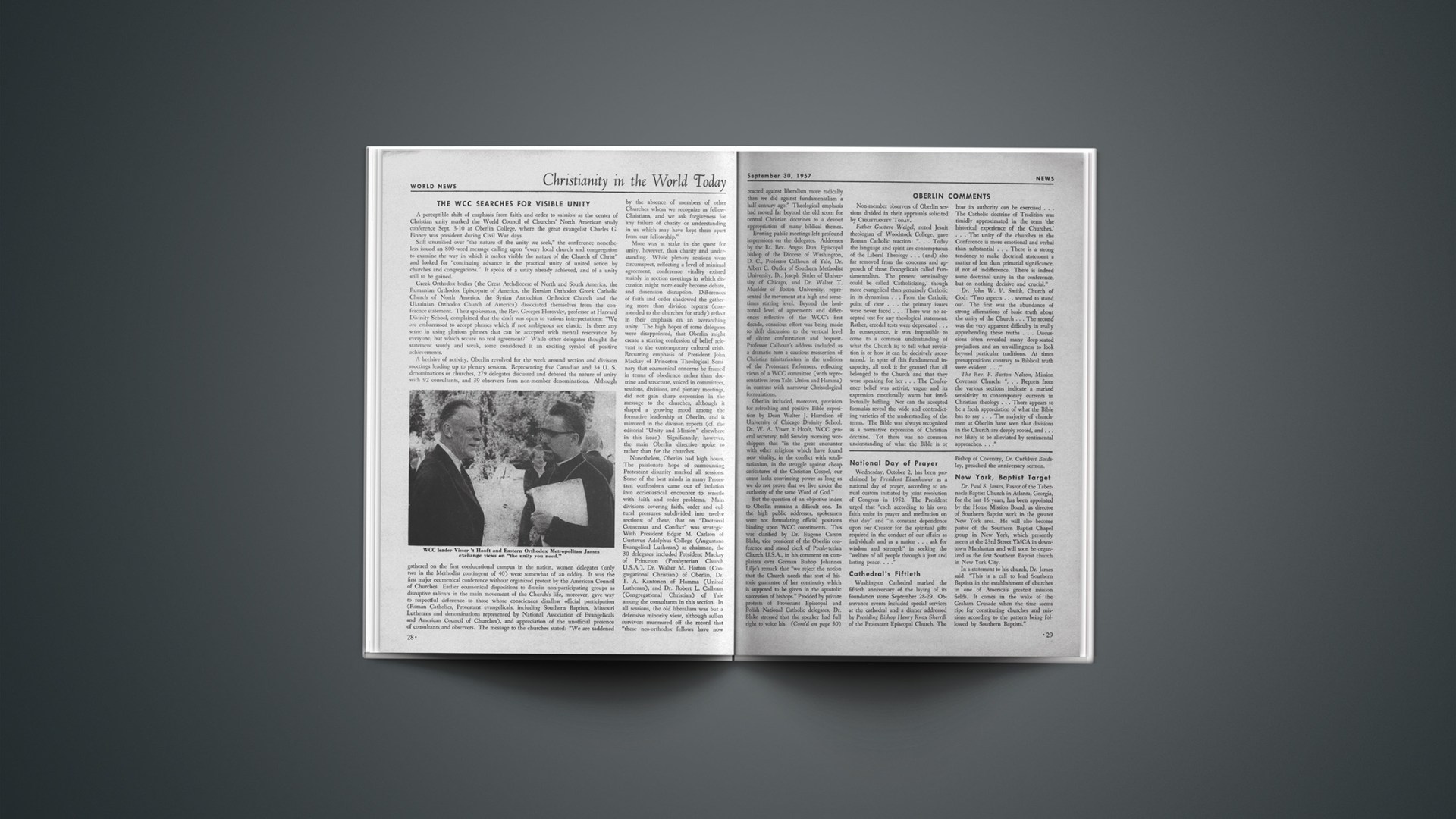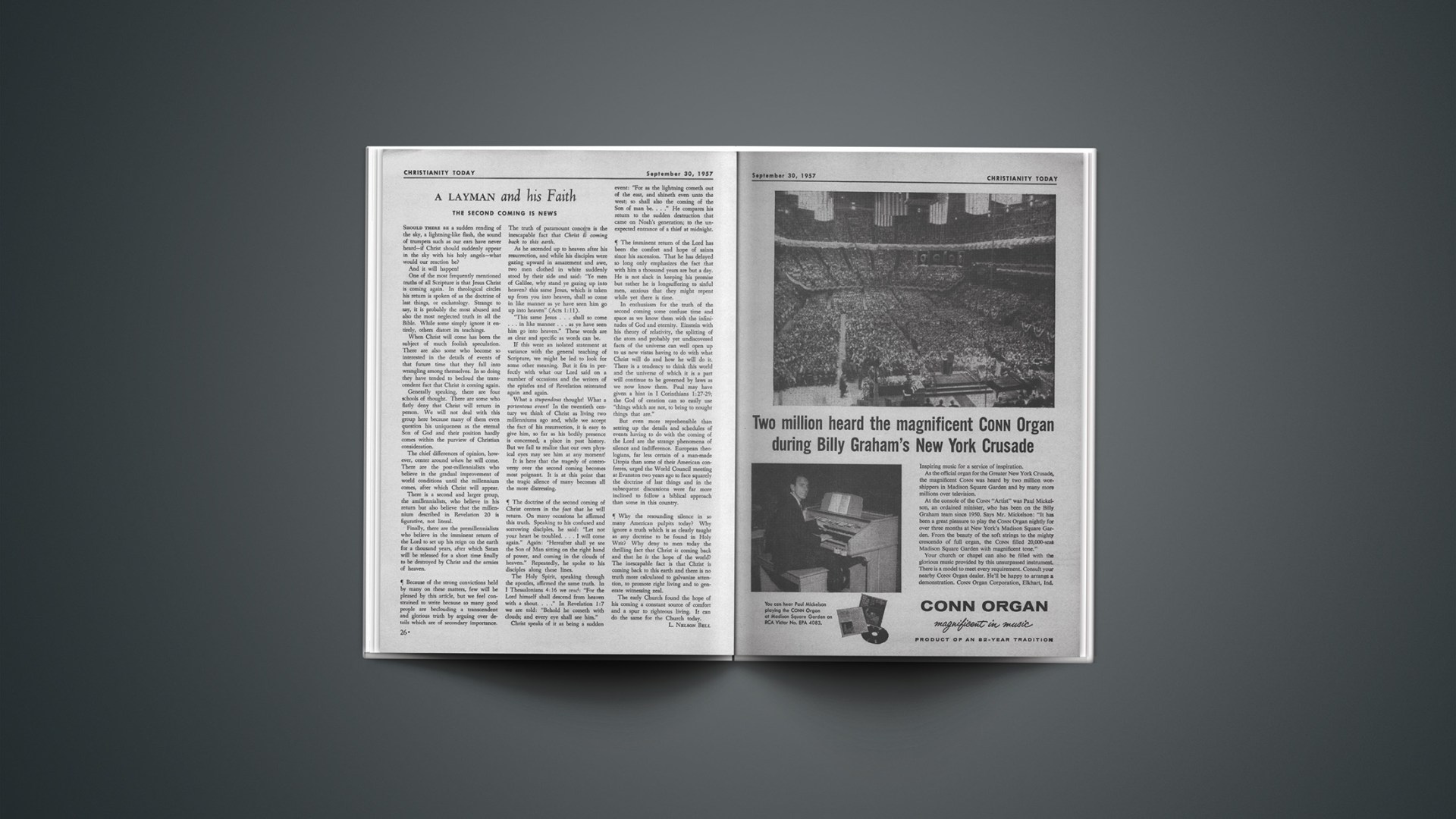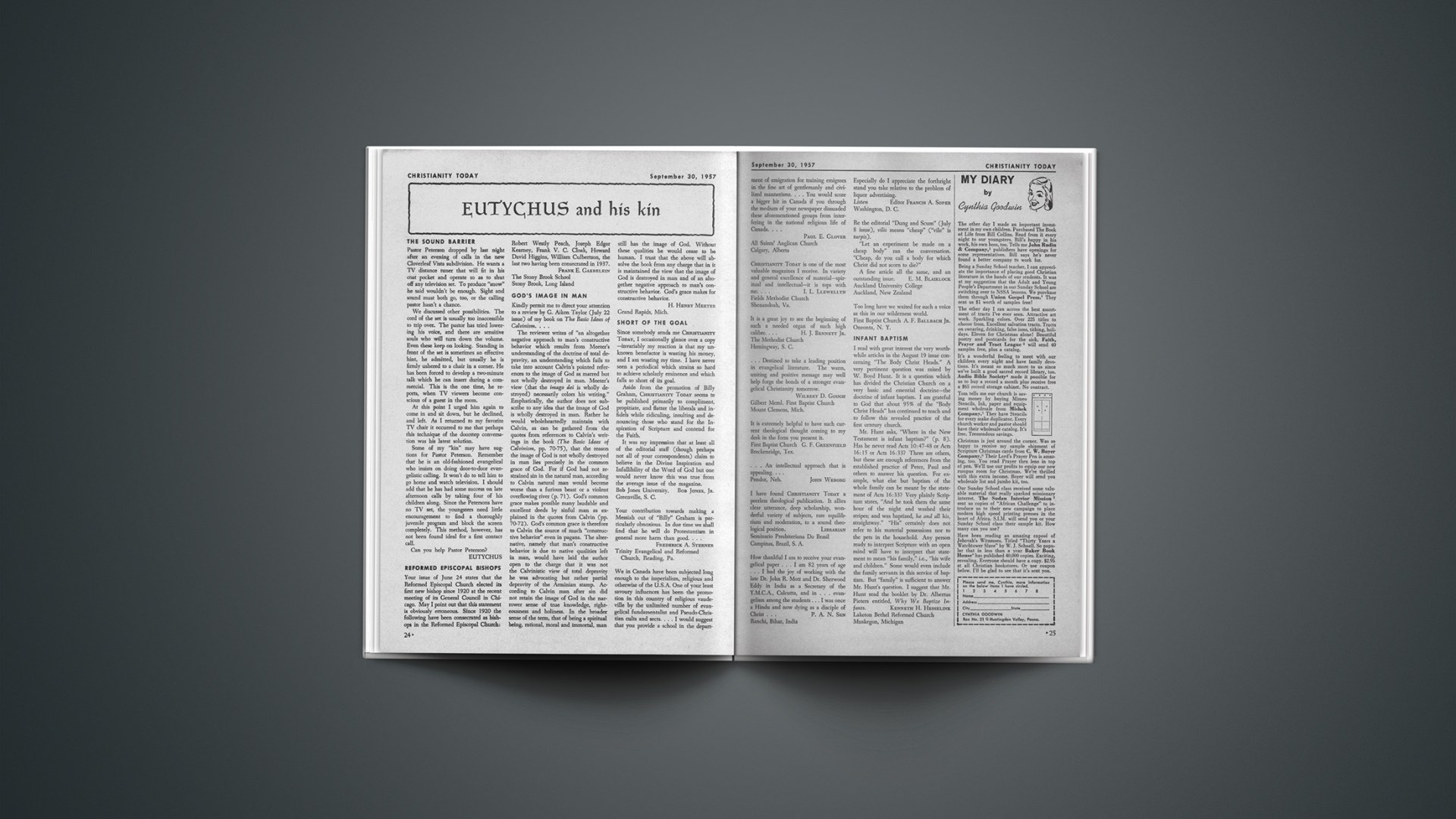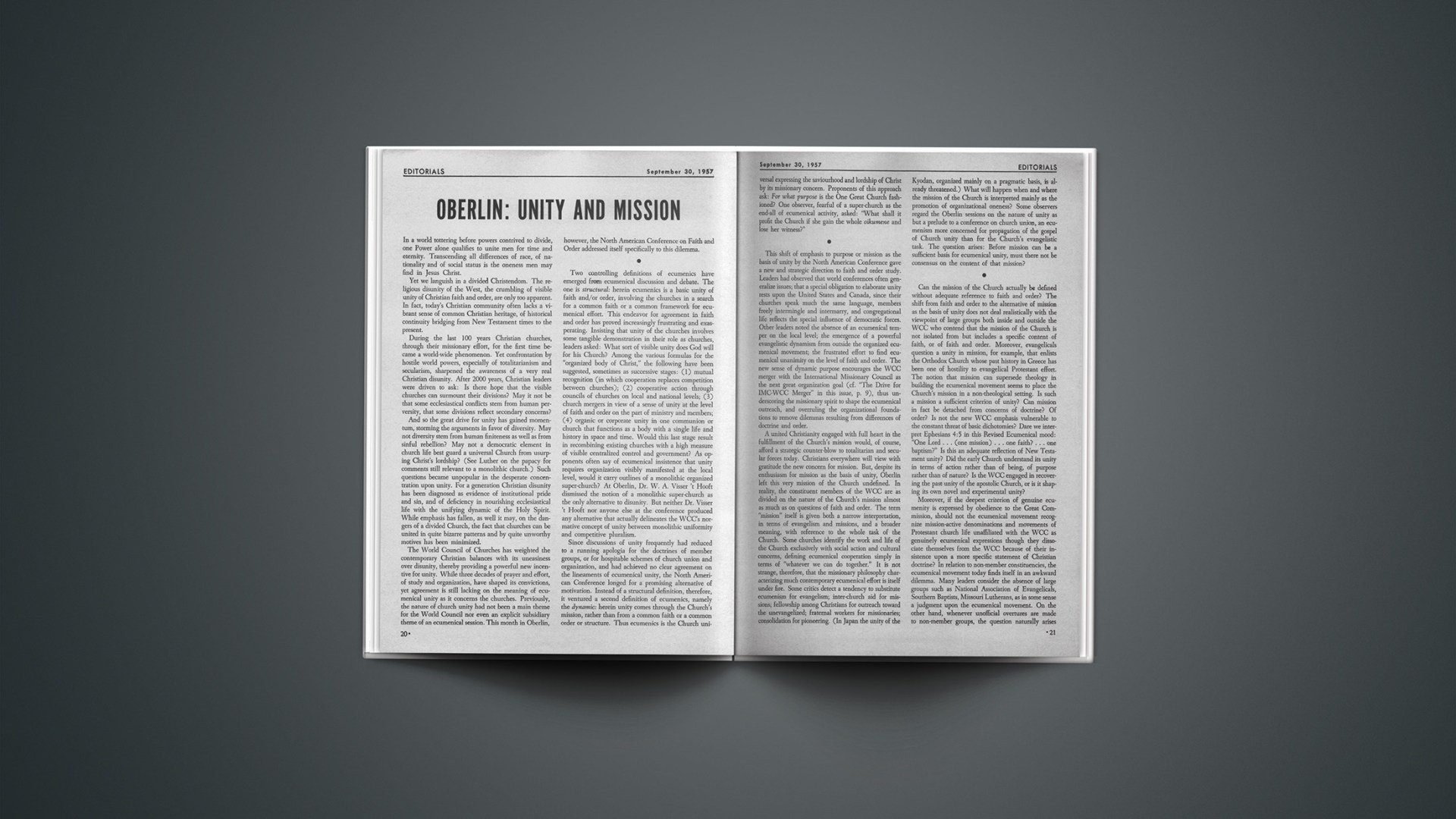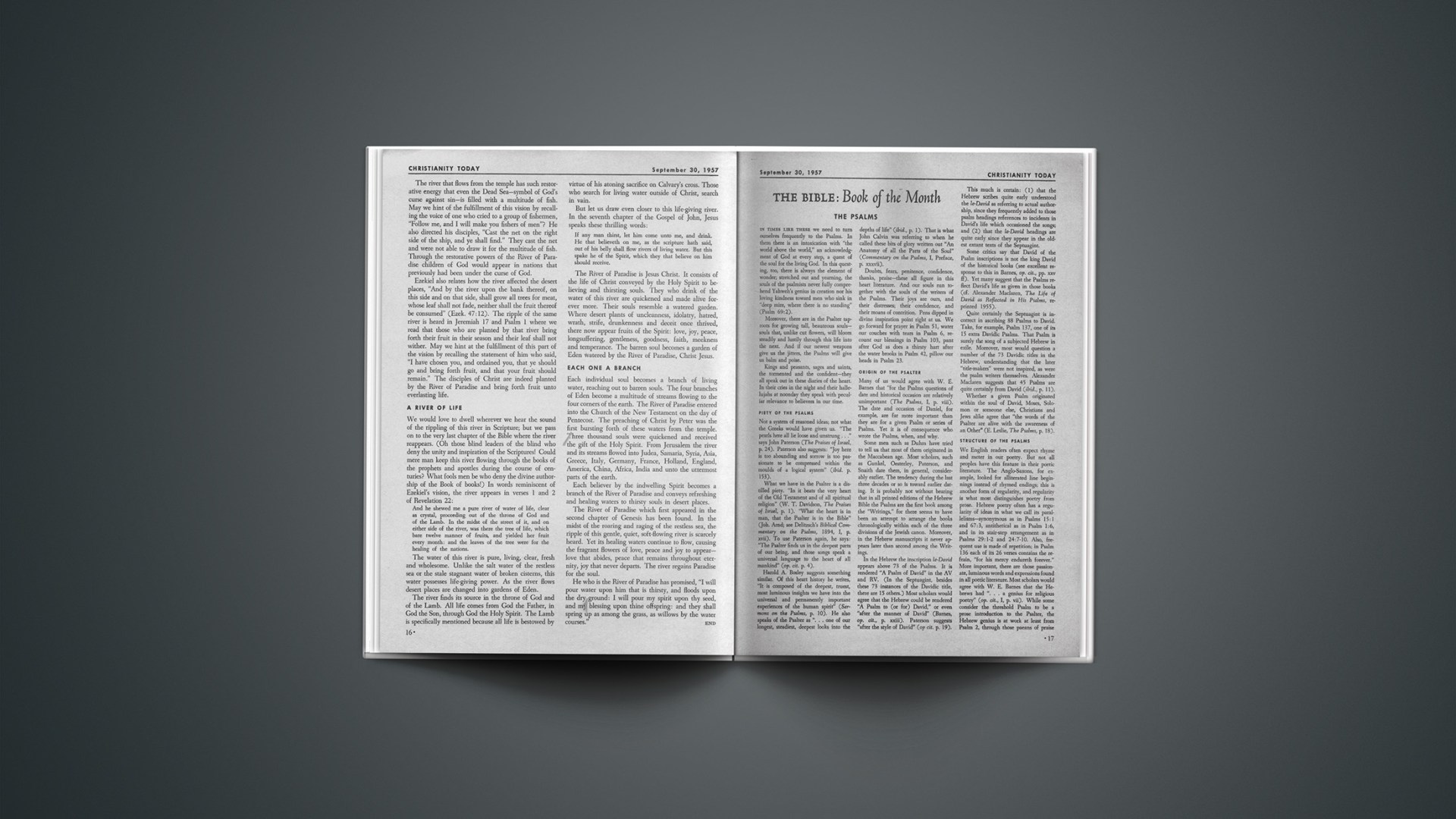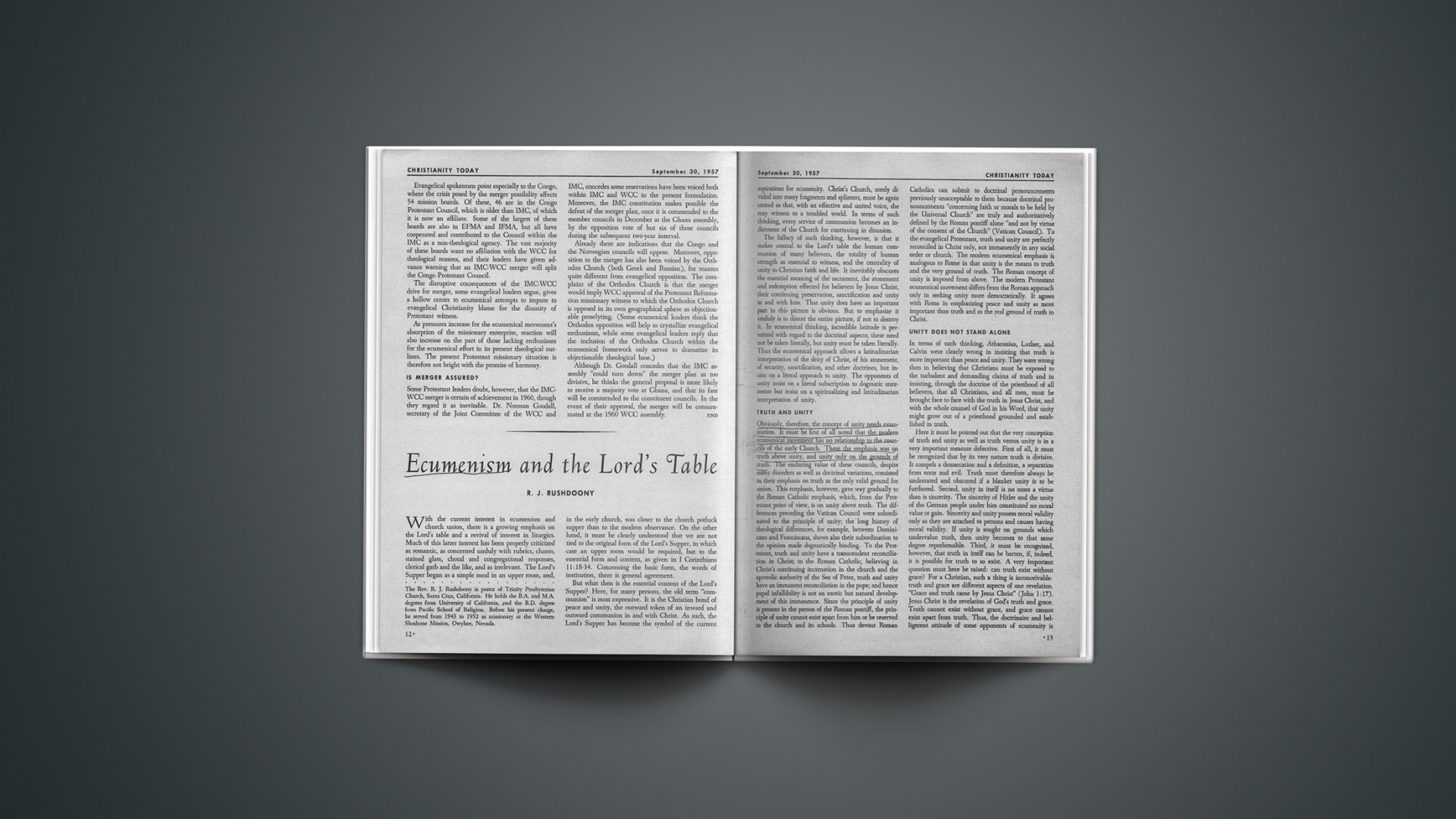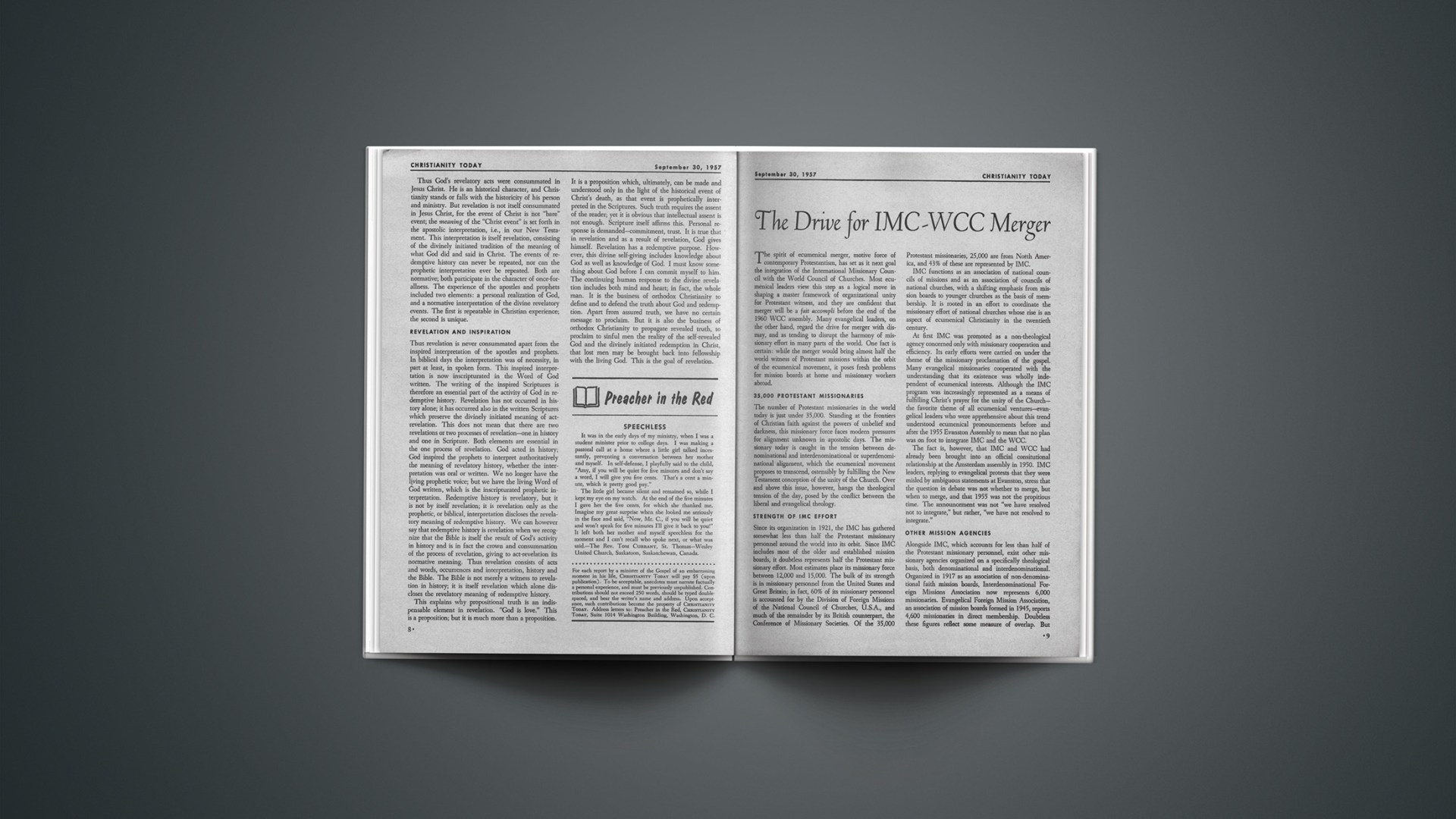Tragic Return
The Pulpit Rediscovers Theology, by Theodore O. Wedel, Westminster, Philadelphia. $3.50.
This is an exceedingly important book: important for its thesis that the Church must return to a vital theology if it is to be a true fellowship of reconciliation offering salvation to truly lost men; and important for the way it manages to evade classical Christianity when it paints its picture of a return to “true Biblical Theology.” The author believes passionately that the quest for the historical Jesus was a mistake—the pulpit, to be effective, must preach a dogmatic gospel about a divine Christ. But he does not mean the Christ of orthodoxy. Yet he sounds the most refreshing, stimulating, evangelical note that I have yet heard rung out by the new theology of our day. For this contrast, the book is a must for every person concerned about modern trends in theology.
The closer neo-orthodoxy comes to historic Christianity and the more nearly it discovers how it can comfortably speak the historic language of the Church, the more potentially dangerous it is. Niebuhr, in a sense, sowed the wind with his new anthropology, appropriating such historic terms as original sin, guilt, creation, the fall, but assigning symbolic meanings to them which robbed the human predicament of its reality. Niebuhr, acknowledging his own limitations, indicated that another must take up the crusade and add a soteriology to his new anthropology.
The present book reaps the whirlwind of Niebuhr’s sowing, with a soteriology which all but diehard liberals will view with reverent awe and many evangelicals will embrace with delight because of its apparent apostolic fervor.
Dr. Wedel’s theme is mouth-watering. In the Incarnation, faith does not see just a great example or master teacher, but Deity itself coming to enter into a new relationship with sinful man. The pulpit which truly preaches the Good News cannot limit itself to an ideal or a code of ethics, but must proclaim a vital theology which has power to save from sin and then sanctify unto eternal life.
Remarkable quotations appear within the book: “(Our people) look to us not for inexpert advice as to how to vote in an election, but for light from another world on this world.” “We have sentimentalized the law and called it an ideal. We have reduced Christ from God to human prophet and moral hero. We have preached discipleship and the imitation of Jesus, not realizing that this, too, when isolated from the Good News of the Cross and the Resurrection, is burden, and not Good News.” And, “Christ must be met as living Lord, as the power of the Holy Spirit, or there can be no death of the sinner and no resurrection.”
Good? Indeed it sounds thrilling. What then can be wrong with it? Here we face the one great question of our day: Are the great affirmations of biblical theology references to literal reality or are they mere symbols of truth essentially philosophical and existential—and what difference does it make? No one denies that the Bible contains symbols in profusion. But are the historic doctrines of the Christian faith merely symbolic of “truth” or do they truly affirm reality? And if they represent literal truth, can the denial of their literalness truly save?
The author frankly confesses that his theology is “new” but he declares that it follows no single modern school. He is rather sympathetic toward the entire “diverse movement” in theology. He “cannot go back to the fundamentalist biblical literalism.” He “cannot possibly” take literally the miraculous in the Bible. Critical historians, he declares, have freed us from the slavery of a literalist Bible.
Original sin is a state of self-centeredness which separates man from God and which includes guilt only as a “feeling.” Grace is the word used to describe the various biblical references which have reunion as their theme. Grace means reunion and its perfect opposite is disgrace (wearing the wrong dress at a party). There is no hint that grace may denote a supernatural power or initiative on the part of a personal Being. Christ is exalted and the Holy Spirit frequently mentioned, but the Christ of God was incognito in the historical Jesus and today being “in Christ” is a matter of being in the organized fellowship of the redeemed, to which Christ has “returned” as its Holy Spirit.
Perhaps the place where Dr. Weber makes his position most clear is at the point of his eschatology. For him, the Church’s theology respecting last things is frankly symbolic. Following C. H. Dodd, he declares that the doctrine of last things confronts the Church with the fact of death and with the fact that the decision we make for or against God is fateful for eternity as well as time. Contemporary theology, he affirms, can no longer accept the orthodox structure of doctrine concerning life after death. With Aulen he affirms that juridical categories can no longer be applied to eschatology. And then he says, “We cannot conceive that God will limit the offer of His love to that fraction of the human race which has had the good fortune to hear the story of the Cross.”
To me there is tragedy in the enthusiastic “return” of modern theology to the “gospel.” It is not without significance that little evidence of guilt, or anguish of spirit, appears in the glib confessions of those who report that for years they followed a blind alley but now know more perfectly the Way. Where is the heartache for the multitudes who followed them up their blind alley and perished in the dead end?
G. AIKEN TAYLOR
Devotional Values
Indebted to Christ’s Resurrection, by C. W. Gault, Pageant, New York. 1956. $3.00
The author’s interest in studies of the Life of Christ, developed in seminary days, has increased in years that followed, and a sample of the fruit from his study in one area, the resurrection of our Lord, is incorporated in this volume. In its conception, the book follows the plan of an anthology. Each chapter begins with a verse or more of Scripture text, then the comments of various authors follow. Occasionally Mr. Gault adds something of his own, principally to provide smooth connections.
Although the author has kept abreast of modern writings on the resurrection, he has a distinct preference for the old masters, quoting most largely from H. Latham, H. M. Paynter, W. G. Schauffler, H. B. Swete and T. V. Moore. For the most part, the emphasis falls on the devotional values of the resurrection accounts, but the critical is not ignored. The reader comes away with a sense of firmer grounding in this cardinal truth of our faith and feels his soul refreshed in the multifarious values of the resurrection for Christian life.
Many are the volumes which touch the resurrection in some fashion. This one is steeped in it. Every verse of the gospels dealing with the subject comes in for consideration, and the material is woven into a pattern which moves from the empty tomb right on to the ascension.
EVERETT F. HARRISON



